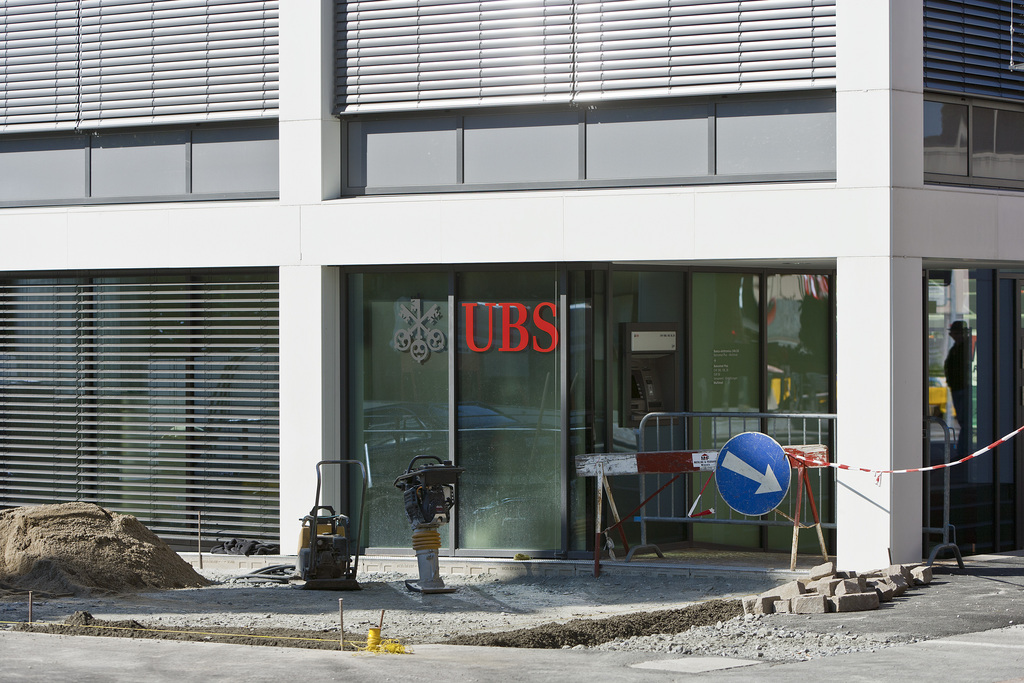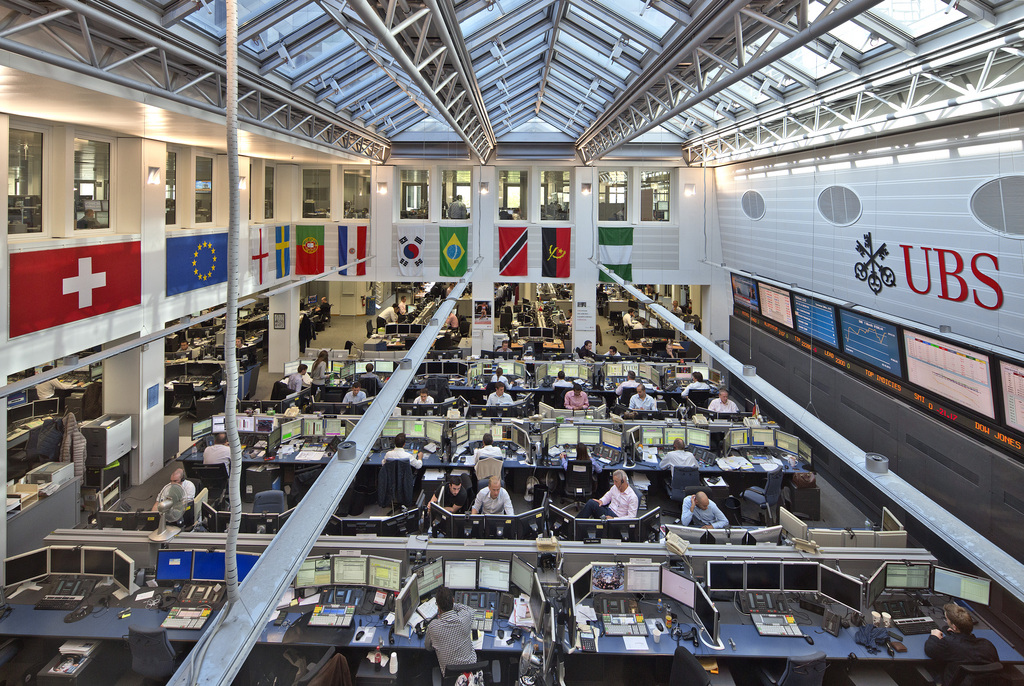Banks seek strategic salve for burned fingers

The record SFr1.4 billion ($1.53 billion) fine imposed on UBS this week for Libor fraud has capped another miserable year for Switzerland’s largest bank – while its rival Credit Suisse can hardly claim to have had a stellar 12 months.
Both banks have streamlined further to minimize the risk of damaging the Swiss economy. Credit Suisse could afford to keep its riskier operations going but the Libor scam and a rogue trading scandal have forced UBS to ditch many activities – along with thousands of staff.
UBS’s reputation has suffered enormously after reeling from one blunder to another in the last four years. In 2008 it had to be bailed out by the government after racking up huge losses in the financial crisis.
A tax evasion scandal in the United States and SFr2 billion ($2 billion) losses incurred by a London-based rogue trader – who was sentenced last month – have been followed by the huge financial penalty for allowing traders to fraudulently manipulate Libor reference interest rates.
The consequences of such a shambolic performance were made clear in a bombshell statement in October: UBS would completely turn its back on the riskier investment banking trades and shed 10,000 staff.
A combination of public, political, shareholder and regulatory pressure in the wake of these scandals had effectively tied both of UBS’s hands behind its back. By contrast, Credit Suisse had one hand free to announce a comparative slim line strategy in October.

More
Shadow banking avoids regulation
CS relatively unscathed
While still tainted by involvement – or at least a suspicion of playing a part – in most of the crises (barring rogue trading), that have engulfed its rival, Credit Suisse has so far walked through the storm relatively unscathed.
Until the summer, the biggest complaint against Credit Suisse was that it had not fully capitalized on its stronger position over UBS. That changed when it bore the brunt of a stinging rebuke from the Swiss National Bank (SNB) in June that accused both banks of failing to implement new regulations fast enough.
The response was raising more capital from the markets and adding another SFr1 billion of savings to the SFr3 billion already announced.
A restructuring exercise is also being implemented that makes an effort to prevent potential losses from the riskiest investment banking operation from infecting the rest of the group. But those risky trades will continue to be played out at Credit Suisse with the potential for greater profits should markets recover.
Considerable risk
The actions of the two banks appears to have placated the SNB. Speaking in December, the central bank’s vice-chairman Jean-Pierre Danthine said that the situation had “improved” at both banks, particularly Credit Suisse.
“Both institutions are planning to further expand their loss-absorbing capital, to reduce their risks and, in particular, trim their balance sheets as well as to pursue a policy of dividend restraint,” Danthine said.
However, he warned that the risks of either bank incurring large losses if the European debt crisis worsens “remain considerable”.
The reaction of shareholders to the two plans suggests that “casino” style trading is still viewed with great suspicion. UBS’s shares soared on the announcement of its strategy while those of Credit Suisse took a dip.
Credit Suisse’s continued attachment to investment banking does not surprise analysts the bank’s heavier reliance on such trading. However, doubts remain about Credit Suisse’s strategy of remaining a global investment banking player given the continued volatility of the business.
How either bank will fare on a global stage against international rivals is at present far from clear cut. The enhanced “Swiss finish” regulations, that start coming into force from January 1, 2013, compel UBS and Credit Suisse to hold back far greater insurance capital than the international standard.
On the face of it, this puts the Swiss duo at a competitive disadvantage, but many institutions in Europe and United States do not yet know exactly how domestic rules will complement the Basel III global recommendations.
Despite the “Swiss finish” regulations being tougher than the global standard, the fact that banks know exactly what is required of them could give them a competitive edge over global rivals, according to observers.
The Basel III banking reforms, presented in 2010 as a global blueprint to help reduce the risk of another financial crisis, recommend that banks hold back at least 7% of their capital to cover risks.
The tougher Swiss Finish regulations require UBS and Credit Suisse to put aside a bigger 19% safety net to cover their risks by 2019.
Some 10% of this capital cushion must take the form of the safest and most liquid equity. The remaining 9% can be held as so-called coco bonds that would convert to loss absorbing equity at a pre-set trigger point if conditions deteriorate.
The new capital requirements are set out in three tiers.
This first tier of capital (4.5% of risk weighted assets held in the highest quality, most liquid equity) is considered a minimum requirement for maintaining normal operations.
A second buffer tier of 8.5% would comprise 5.5% highest grade equity and up to 3% in coco bonds.
A third tier, called a progressive element, could be called upon if problems worsened. This element would be made up of coco bonds.
The banks could earn a “discount” on the amount of capital they have to hold in the third tier if they could prove that risky business lines could be isolated and liquidated in an orderly manner in the event of a crisis.
There are also limits on the amount banks can borrow to fund trading activities.

In compliance with the JTI standards
More: SWI swissinfo.ch certified by the Journalism Trust Initiative





You can find an overview of ongoing debates with our journalists here. Please join us!
If you want to start a conversation about a topic raised in this article or want to report factual errors, email us at english@swissinfo.ch.